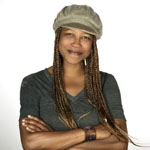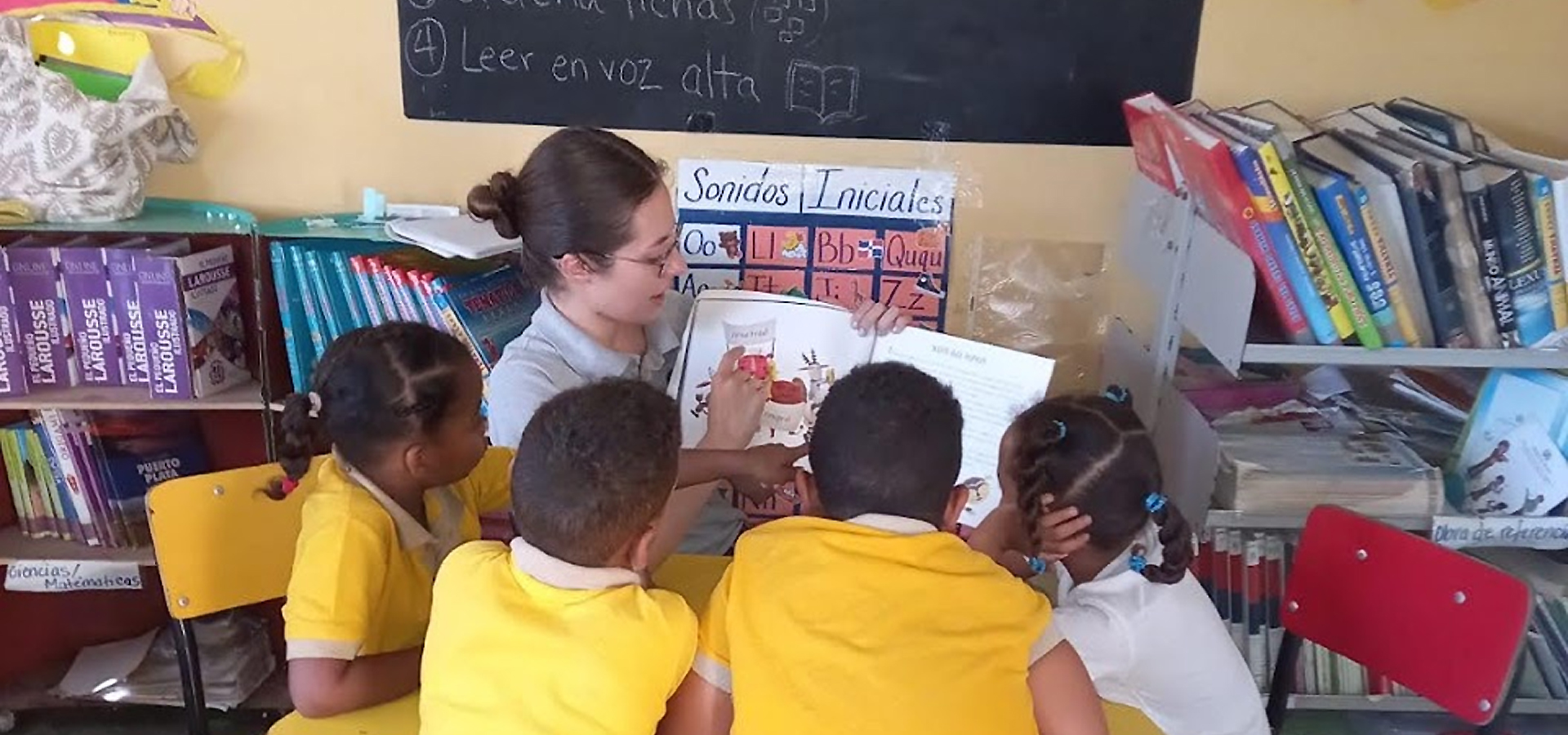In Brief: Fall 2024 news, scholarship, and announcements from around campus
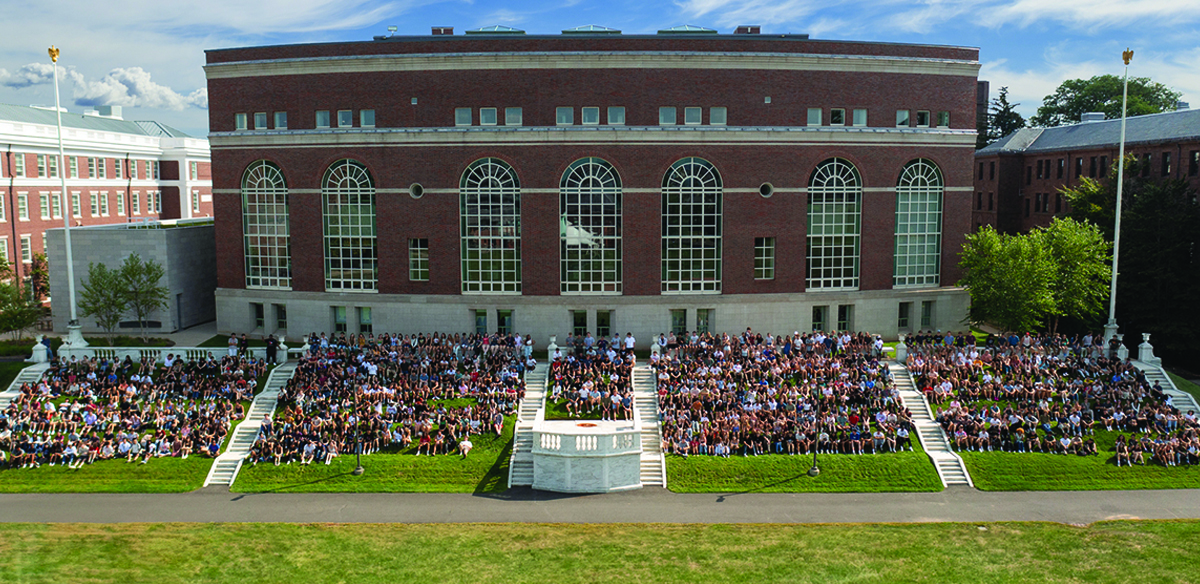
On August 28, President Michael Roth led the Wesleyan community in welcoming the Class of 2028 to campus. For these 830 new students, Arrival Day marked the launch of an exciting educational journey pursuing the Wesleyan values of boldness, rigor, and practical idealism. The Class of 2028 hails from 40 states and 35 countries and included the second cohort of African Scholars. There are 52 languages spoken by members of the first-year class, who hold citizenship in 70 countries. Wesleyan also welcomed 48 new transfers, including students who came from community college as well as veterans.
Ahead of the presidential election, research from the Wesleyan Media Project has figured prominently in a variety of media outlets. Research released on September 12 revealing that Trump’s campaign is spending almost nothing on ads that show him in a positive light and instead focusing on negative ads about Harris has been mentioned in The New York Times, The Washington Post, The Pittsburgh Post-Gazette, and former US Secretary of Labor Robert Reich’s newsletter. Additional Wesleyan Media Project research regarding political advertisements has received news coverage from Wisconsin Public Radio, Tampa Bay Times, and Bloomberg Law.
Data privacy software developed by Assistant Professor of Computer Science Sebastian Zimmeck and team is now a free, state-approved option for all Colorado residents. The Colorado Attorney General’s office launched the software, known as Global Privacy Control, as part of its new opt-out program, which allows participants to tell any website they visit to refrain from tracking their data. The opt-out program is the result of a new state law that gives the state the power to prosecute companies that collect data from users who use opt-out programs. Zimmeck also leads a privacy tech lab at Wesleyan and advises tech companies and governmental regulators.

On October 26 to 28, Center for the Arts artist-in-residence Anna Deavere Smith offered a three-day Artistic Congress event in partnership with the Long Wharf Theatre and Yale University. She delivered a keynote conversation with Wesleyan’s Rob Rosenthal Distinguished Professor of Civic Engagement and Executive Director of the Allbritton Center for the Study of Public Life Dr. Khalilah Brown-Dean, as well as a conversation with Center for the Arts Director Joshua Lubin-Levy ’06. On Sunday, October 27, Deavere Smith gave a staged reading of her original essay “This Ghost of Slavery: A Play of Past and Present,” which was published in The Atlantic in 2023.
Professor of Film Studies Randall MacLowry edited an episode of PBS’ American Masters, which debuted on September 17. “Julia Alvarez: A Life Reimagined” explores the influential Dominican-American poet and novelist’s chronology, from her semi-autobiographical 1991 novel How the Garcia Girls Lost Their Accents and her 1994 bestseller In the Time of the Butterflies to her recently released novel The Cemetery of Untold Stories. The episode was produced and directed by award-winning documentary filmmaker Adriana Bosch.
On September 3, medical journal The Lancet announced the appointment of Jennifer Tucker, professor of technology, law, and visual culture and founding director of the Center for the Study of Guns and Society, as commissioner of the new Commission on Global Gun Violence and Health. The group includes international experts from a variety of fields, such as political science, medicine, and public health, as well as non-governmental sectors and civil society. The Commission will carry out a comprehensive risk analysis on guns, determining their global health and non-health consequences.
The Shapiro Center for Creative Writing and Criticism has been hosting the 2024–2025 “The Art of Editing” speaker series with Merve Emre, Professor and Director of the Center, and a selection of visionary editors from esteemed publications such as The New Yorker, Harper’s BAZAAR, and Vanity Fair. Editors include Meghan O’Rourke, Sasha Weiss, Ben Calhoun, and Zakiya Dalila Harris. Topics such as the future of editing in literary culture, how the production process differs depending on the medium, and collaborating with writers are discussed.
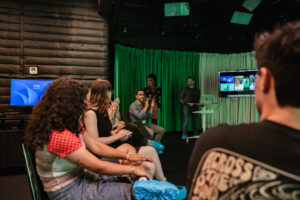
Wesleyan’s new multimedia Digital Design Commons boasts a motion capture studio, video editing suites, a sound recording studio, equipment checkout, a multimedia classroom, and co-working lounge. “The opening of the DDC isn’t just an expansion in the range of technologies available in the arts at Wesleyan,” said Dean of Arts and Humanities Roger Grant. “It’s about unlocking the potential in our students to work in art areas that are not yet canonical or even fully understood.” An opening celebration event took place on September 27, with student performances and a visual effects demonstration.
Ahead of the 2024 presidential election, the University announced a new Democracy 2024 initiative promoting civic participation and liberal learning through engagement in the public sphere. President Roth recently shared with Salon, “By defending democracy, we will deepen learning; by deepening learning, we will defend democracy.” As part of these efforts, Wesleyan hosted a number of events to empower students, faculty, staff, and community members to develop their citizenship skills, including the following:
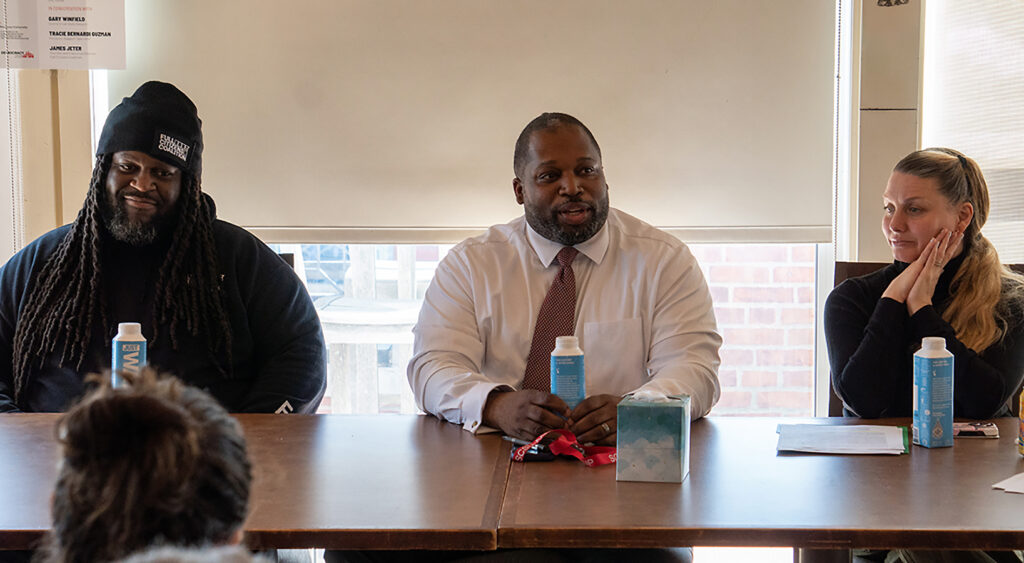
- On October 8, the Allbritton Center for the Study of Public Life and the Center for Prison Education hosted “Barriers to the Ballot,” which gathered leaders working to remove barriers to voter registration and ballot access in Connecticut.
- “Democratic Justice: Juries and Democracy in Ancient Greece and Contemporary America,” held in Downey House on October 14, explored the close relationship between democracy and the jury trial in ancient Greece and proposed that juries are an essential component of modern democracies.
- Professors Katie Pearl and Katie Brewer-Ball invited students to pull up a chair, grab a plate, and reappropriate the dinner table as a public forum in “Long Table: What Is Political About Art?” on October 10.

